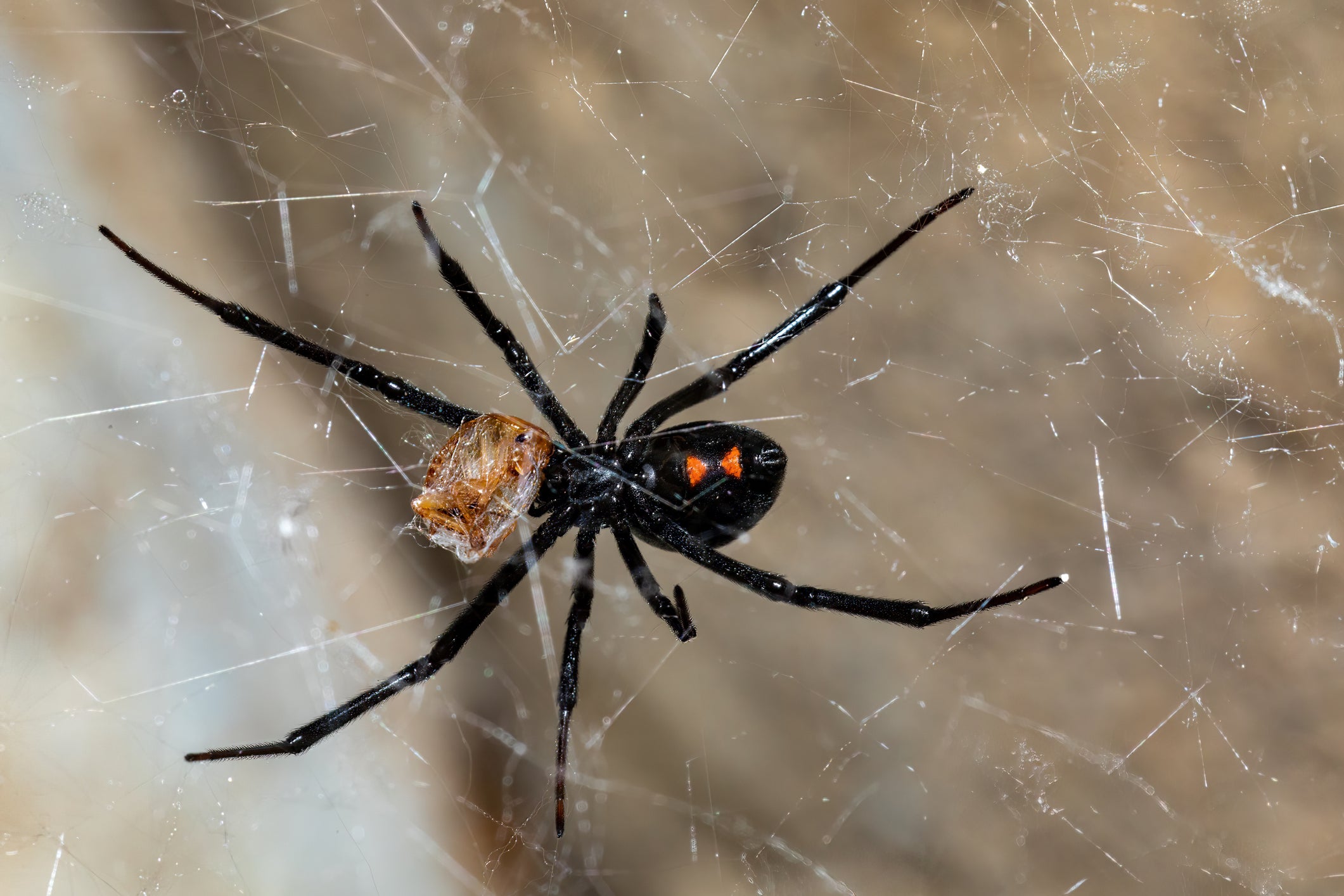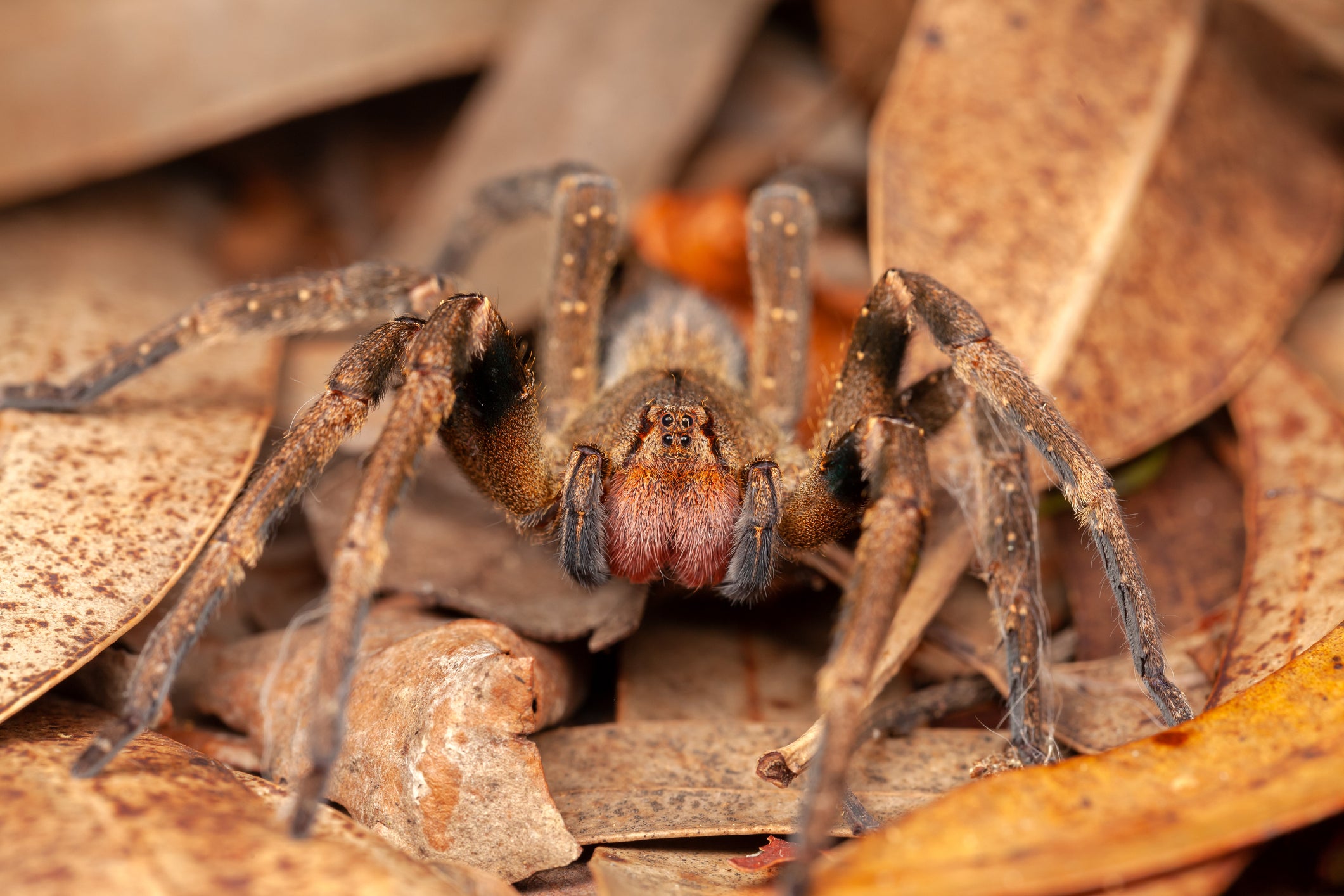A reptile expert has shared his fears that a deadly spider species could invade the UK.
Chris Newman, Director of the National Centre for Reptile Welfare, said he is worried that the Black Widow spider could “become established” in this country.
Black Widow spiders are around 1.5 inches long and identified by the red, hourglass-shaped mark on their abdomens.
Because they are found in more temperate parts of the world, they would be able to withstand the colder climate in the UK.
The charity director said his team recently collected dozens of Australian black widows found at the Dartford Crossing in a shipment from Japan.
Mr Newman told The Independent: “Black Widows come from a very wide habitat and they have already become established in Japan, where temperatures are similar to the UK. So there is a concern that Black Widow spiders could become an invasive species here.”

The venom in the spider’s bite is reported to be 15 times stronger than a rattlesnake’s. In humans, bites produce muscle aches, nausea, and a paralysis of the diaphragm that can make breathing difficult.
Mr Newman said “for the average healthy human, they are not likely to be life-threatening,” however, it can be fatal for children and the elderly.
The charity director also raised concerns about the Brazilian Wandering spider, which he said he has seen for the first time in 30 years in a pack of bananas.
They are common in South America, and can also be very dangerous. Luckily, because they are used to warmer temperatures, they “cannot be established here”.

He said: “Every year we will see four or five scary looking spiders in banana packets, but they are actually harmless.
“The likelihood you will find a Brazilian Wandering spider is extremely remote, but we still need to take it seriously because it is very dangerous.”
Mr Newman said the Brazilian Wandering spider is normally found at ports of entry and shipments. They recently found one in a shipment of electronic parts, but unlike common belief, it is “not typically found in fruit over vegetable” and is more likely to be found in “industrial parts” from South America.
“The lesson is: if you are buying bananas, wash them carefully. Make sure there’s nothing there before you put them on the dinner table,” he said, adding: “I want people to know that if they do find something they think is dangerous, there is help out there.
“Our line is available 24/7. We can quickly identify if is this something that is harmless or harmful.
“If it is harmless, we can easily deal with that. But if we identify that the spider is harmful, we can give advice on how to keep people safe in the meantime.”
Advising what to do if you are bitten by one of the two deadly spider species, he said: “Don’t try and do any old home remedies. Keep that part of the body still. Try to keep as calm as possible and seek medical help straight away.”
A Defra spokesperson said: “We are constantly assessing for new risks and threats and we are committed to keeping invasive plants and animals out of the UK.
“We advise all travellers to be careful to ensure their clothing, equipment and luggage is free from any stowaways that could accidentally introduce invasive species, pests or diseases.”
